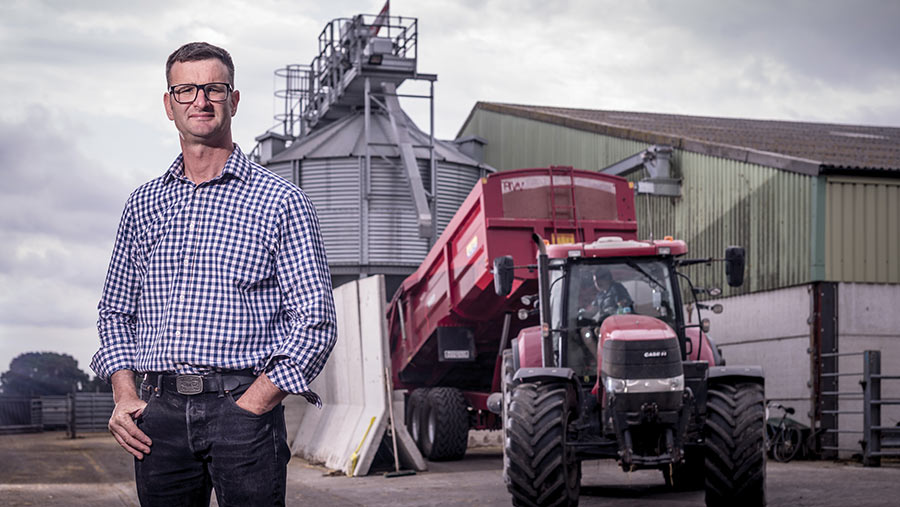Farmer Focus: Easier getting cattle sold than crops drilled
 © Jim Varney
© Jim Varney As I sit here sipping on some “very cherry” moonshine, the annus horribilis (year of misfortune) continues.
Two attempts at getting oilseed rape established have most likely failed with flea beetle, so we are changing plans.
See also: Processor games on hold as beef price heads to £4.80/kg
On the strong land we will do what our forefathers did and grow grass, with a twist.
A mixture of Westerwolds and ryegrass has been drilled and, as we deplete the ryegrass in year two, we’ll undersow that with red clover.
It’s a long-term break crop, but will suit the land type and adds another string to our bow in regard to feeding the cattle, giving us a nice mid-tier protein source.
Two tail-ends of North American hurricanes have left us very wet. We seem to be working in multiples of 30: it’s either 30C or we have 30mm of rain in an hour.
The drilling programme hasn’t maintained the 24ha (59 acres) a day average to get done for 5 October.
Instead of a sprint, it’s turning out to be a marathon, which mentally I find very hard work.
Customers have been sending cattle into our finishing yard at a furious rate of knots, with everyone’s ground saturated.
Logistically, this has caused us problems, with a lot of shuffling about needed, but we have in general kept everybody happy, even with a mild quota system, weighted towards year-round customers.
Although processors won’t admit it, they are short of cattle. Booking in to procurement is very rapid. This has been reflected in an uplift in the fat price.
There are definitely fewer fat cattle coming off grass, as the cattle “melted” due to the poor summer, compounding the general shortage for the processors.
I have read that whole farms are going into various ridiculous schemes as the Sustainable Farming Incentive rolls out, usually affecting tenant farmers the most. They are some of the most efficient producers in the business.
British farming appears in danger of dropping below critical mass. As a nation, we should aim to increase food security, but solar, housing, roads and railways are all swallowing up great swaths of land.
However, the root cause of a lot of decisions in farming boils down to the fact that the risk isn’t currently worth the reward.

